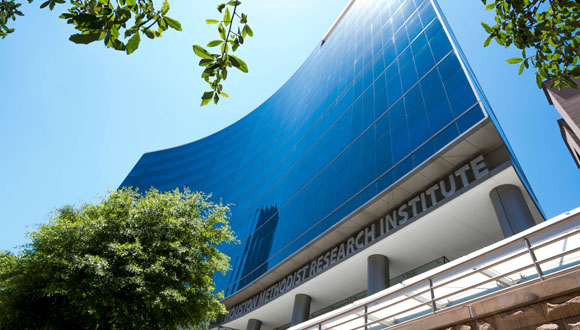Coronavirus: Experimental Blood-Transfusion Therapy May Offer Promise for Critically Ill Patients
March 31, 2020 - Katie McCallumSimilar to the flu, the new coronavirus disease (COVID-19) spreads mainly from person-to-person through respiratory droplets produced when an infected individual coughs or sneezes. Unlike the flu, there's currently no vaccine or specific treatment for COVID-19. This means that, beyond supportive care, there's little to offer people who are infected with the virus.
In order to curb the impact of COVID-19, doctors and scientists across the nation are working tirelessly to find effective ways to fight the new virus. Some of these methods, such as vaccines and new medications, will take anywhere from months to over a year to develop. But other experimental treatment approaches, such as a type of blood-transfusion therapy called convalescent plasma therapy, offer a more immediate way to potentially fight or alleviate the effects of COVID-19.
On Saturday, March 27, Houston Methodist became the first in the nation to transfuse convalescent plasma collected from a recovered COVID-19 patient into one who is critically ill. This occurred after the Food and Drug Administration (FDA) approved an "emergency investigational new drug" application to test this new therapy. The next day, the team provided convalescent plasma to a second critically ill patient.
"There is so much to be learned about this disease while it's occurring," said Dr. Marc Boom, Houston Methodist's president and chief executive officer, in a statement shared with the Houston Chronicle. "If an infusion of convalescent serum can help save the life of a critically ill patient, then applying the full resources of our blood bank, our expert faculty, and our academic medical center is incredibly worthwhile and important to do."
How convalescent plasma therapy works
Convalescent plasma therapy takes blood plasma from a recovered COVID-19 patient and transfuses it into a person who is currently suffering from COVID-19.
"The idea is that plasma may have part of the immune system, like antibodies, against the COVID-19 virus that could potentially help patients who are currently sick with COVID-19," said Dr. Eric Salazar, a physician scientist with Houston Methodist's Research Institute, in a video interview with the Today Show.
The process began with Dr. Salazar and his team recruiting blood plasma donors who have been in good health for more than two weeks since being diagnosed with COVID-19. Donors each gave a quart of blood plasma in a procedure much like donating whole blood. The plasma was then transfused into two critically ill COVID-19 patients. The hope is that transfusing this potentially antibody-rich plasma into a person currently fighting the virus may provide a healing, possibly life-saving therapy.
It's a concept that dates back to the Spanish flu pandemic of 1918, but convalescent plasma therapy was also tested in various other widespread illnesses, including the more recent Ebola and SARS epidemics. In addition, the experimental therapy was used on five COVID-19 patients in China, with early reports indicating the treatment was beneficial.
Now, Dr. Salazar and his team are watching closely to see if the transfusion works. While it may have helped a small number of patients in China, much more study is needed to determine whether or not convalescent plasma is an effective therapy for COVID-19 patients.
What's next for convalescent plasma therapy?
Our doctors and scientists are hopeful that this experimental new therapy will be a viable, scalable answer that can help manage the COVID-19 pandemic.
When asked by chief medical correspondent for CBS News, Dr. Jon LaPook, how many people Houston Methodist would like to be able to treat per day using this method, Dr. Salazar said, "As many as possible."
The therapy requires that recovered COVID-19 survivors be willing to donate their blood plasma, but Dr. Salazar also added, "I don't think any center across the country will have any trouble recruiting donors who have recovered from COVID-19. These are incredibly generous people."
One of the major advantages of this experimental treatment approach is that it can be tested and used right now — providing a timely response to the COVID-19 pandemic in the absence of a vaccine and specific treatment options.
"Convalescent serum therapy could be a vital treatment route, because unfortunately there is relatively little to offer many patients except supportive care, and the ongoing clinical trials are going to take a while. We don't have that much time," Dr. Salazar told the Houston Chronicle.
In addition to these initial tests, our physician-scientists will seek additional FDA approval for follow-up experimental studies, and possibly a multicenter national trial on the effectiveness of convalescent serum therapy against the COVID-19 virus. And, with hospitals across the country ramping up or already following suit to offer this experimental therapy, doctors at Houston Methodist aren't alone in this endeavor.
Next Steps:
- If you have had COVID-19 and are interested in helping others by donating your plasma, please call 346.238.4360 or learn more here. Please note: You do not have to be a Houston Methodist patient to donate, but you must have a documented, positive COVID-19 test.
Additional Links:
- Read our story in the Houston Chronicle
- Watch our coverage on the Today Show
- Watch our coverage on CBS This Morning


